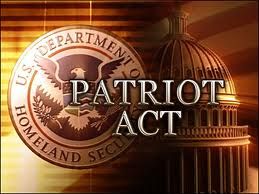Ward: U.S. government needs to be wary when putting American freedoms in jeopardy

source: http://d7.freedomworks.org.s3.amazonaws.com/field/image/patriot%20act.jpeg
June 3, 2015
The irony of being an incredibly public generation while wanting to keep ourselves private isn’t lost on me. I’m an active user of social media on a variety of platforms but as a result of that I am very careful of what I release out onto the World Wide Web. The pictures I select to put on Instagram go through an extensive internal debate just as the wording of my Tweets is meticulously thought out. Ours is a generation that loves to create a perfect media façade, which is why it comes as no surprise that we stand firm against wanting our phone records to be a part of a nationwide dragnet for terrorists without motive or consent.
The shadow of the 9/11 attacks cast a huge fear onto this country, and rightfully so. Wanting to take preventative measures following the horrific events doesn’t come as much of a shock. However, amidst such a huge time of crisis, keeping secrets from the American people does nothing beneficial. The years following should have been used to pull this country together rather than set a strong barrier between the government and U.S. citizens.
However, unbeknownst to us, The USA Patriot Act was doing just that. President George W. Bush signed this act into law on October 26th 2001; a huge turnaround given that the terrorist attacks on the World Trade Center had occurred just over a month prior. In order for that bill to make it through all the necessary steps that rapidly, the amount of debate between the House and the Senate needed to ensure everything was on the up and up was passed over.
The USA Patriot Act, although it sounds like a simple name for an act, is actually an acronym for its purpose. When broken down it reads, “Uniting and Strengthening America by Providing Appropriate Tools Required to Interfere and Obstruct Terrorism.” On the surface it sounds ideal. The government quickly working together in order to prevent a sequel to the 9/11 catastrophe. But in reality it altered the checks and balances required by our government to work in favor of the people and created an opportunity for the government to spy on its own citizens via cellular providers.
These actions went unnoticed for more than a decade until Edward Snowden, a four-year National Security Agency worker, unmasked what the government had been doing the entire time. Yes, keeping its finger on the pulse of potential terrorist acts, but also using the growing digital world to infiltrate the lives of an average American without any terroristic skeletons in their closet.
And now, two years following the leak of government documents, The USA Patriot Act provisions have expired, and that sounds alright to me. Last year, with the imminent expiration date approaching, the government discussed making alterations to a bill entitled the USA Freedom Act that would finally put a stop to this massive data collecting but would live on after the USA Patriot Act expired. However, the House and Senate couldn’t come to an agreement on what modifications should be made by the June 1 deadline.
As every American should, I want the government to go after anyone who is posing an imminent threat to this country. Although I was only in grade school during the 9/11 attacks and I don’t remember it while it was happening, I have lived most of my life in a world where war is raging and security is tight and I have no desire to repeat the horrors of the past. The government has the right to follow leads with motive and evidentiary support but not at the expense of freedoms naturally granted to us as Americans. Moving forward, the debate that was overlooked in 2001 should be at the forefront of the recreation of any act in which the government combs though Americans’ private lives.






